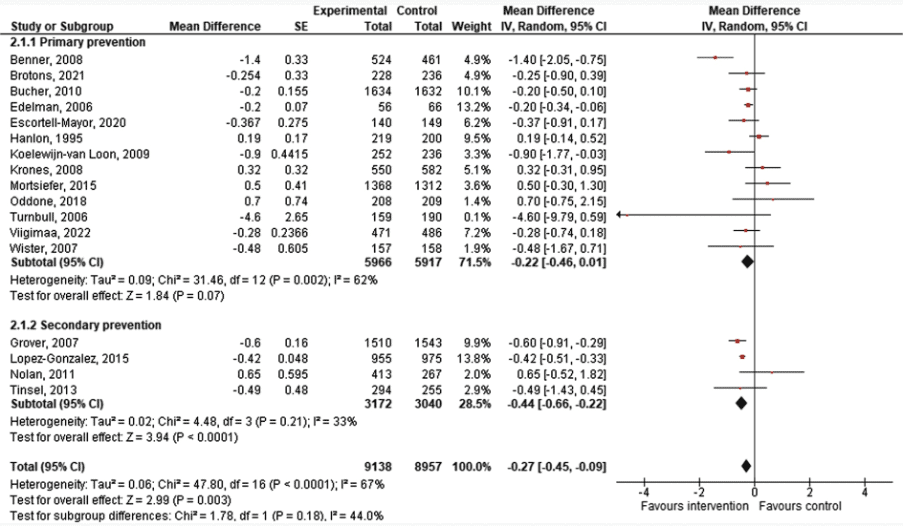By Dr Jonathan Shurlock
Edited by Dr. Ahmed El-Medany
A meta-analysis from Dr Mina Bakhit (@Mina_Bakhit) and colleagues has explored the role of cardiovascular disease (CVD) risk communication and its role in promoting behavioural change. The authors identified randomised trials comparing CVD risk communication as a part of treatment, versus usual care, with 62 trials included.
Participant accuracy in identification of their CVD risk was higher in those receiving structured risk communication (odds ratio (OR) = 2.31, 95% confidence interval (CI) = 1.63 to 3.27). There was a significantly increased likelihood of self-reported dietary modification for primary prevention, in those receiving intervention (OR = 1.50, 95% CI = 1.21 to 1.86). Interestingly there was no increase in change to other lifestyle factors including smoking or physical activity. A small overall decrease in CVD risk scores was seen in the pooled intervention groups (Figure 1).

Figure 1: Change in cardiovascular disease risk score at 6-12 months of follow-up (n = 17 studies). CI, confidence interval; SE, standard error. Source Bakhit et al, 2024. https://academic.oup.com/eurheartj/advance-article/doi/10.1093/eurheartj/ehae002/7578334?login=false#436848443
There were statistically significant improvements in blood pressure in the primary prevention groups and serum cholesterol in the secondary prevention groups, but the clinical significance of this is less clear. Objective clinical outcome improvement would be beneficial to see.
The full paper should be explored to consider the intricacies of the relationships between health behaviours, CVD risk and communication of this risk. It can be found in open access format at the European Heart Journal.

